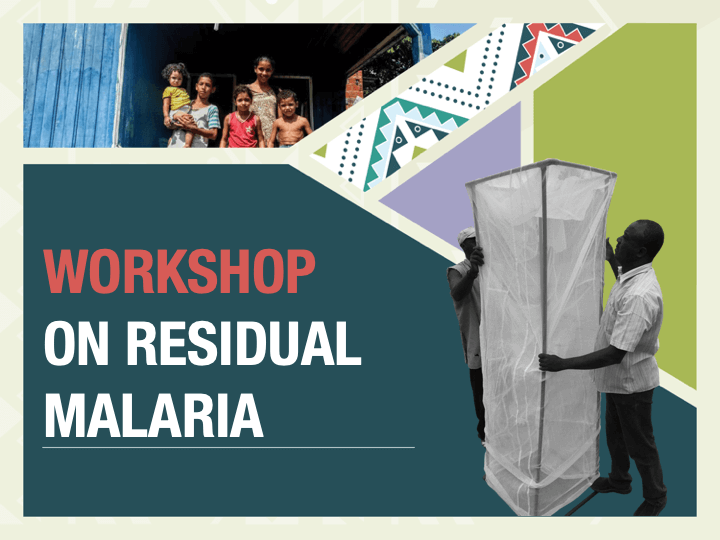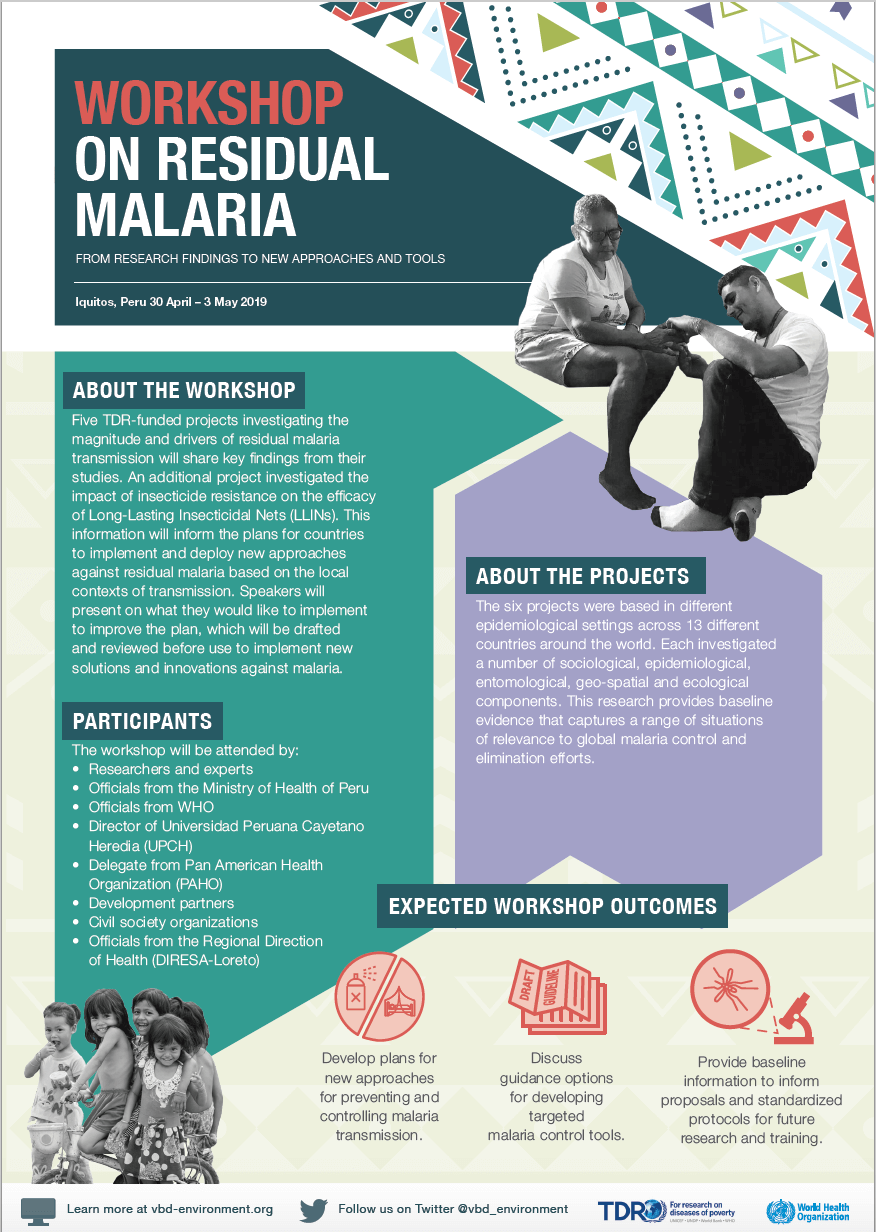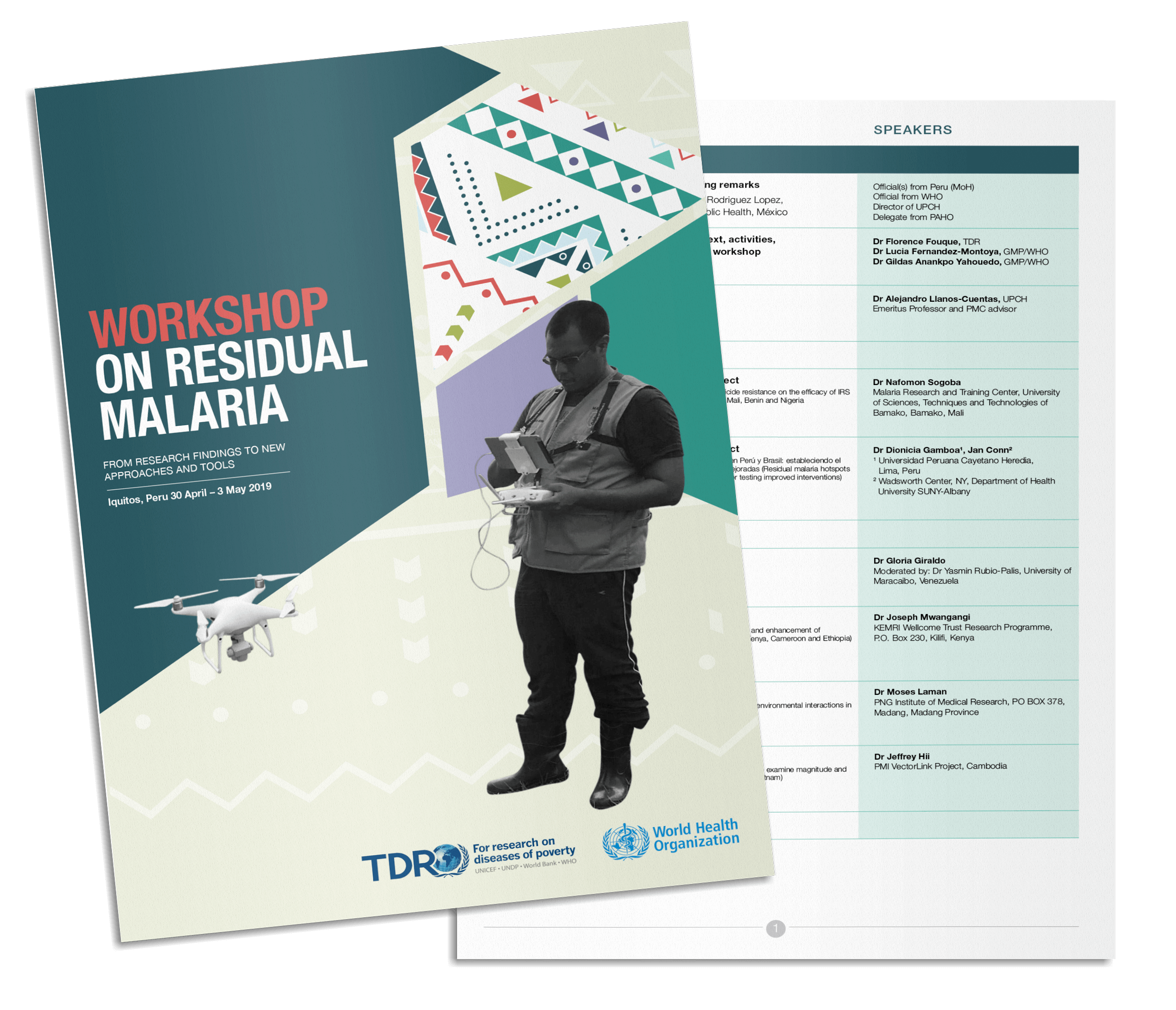News

25 Apr 2019
Workshop on Residual Malaria, Iquitos, Peru
30 April 2019 - 3 May 2019
This workshop is an opportunity for researchers to share their key findings from six projects investigating residual malaria and insecticide resistance in various epidemiological and ecological settings in 10 countries in Africa, South-East Asia, South America and in the Western Pacific region. Bringing together researchers, ministers, policymakers, experts and partners, the event will help the countries to develop new strategies and tools that are context-specific for addressing residual malaria in local communities.
This is the second iternational workshop intended for results to be shared among the researchers. The first meeting was hosted by hosted and suppoorted by the Ifakara Health Institute in November 2017 in Dar-es-Salam, Tanzania.
The workshop in Iquitos will involve:
- Presentions of main scientific findings around malaria transmission patterns in various local contexts
- Discussions of plans to implement and deploy new approaches for preventing and controlling malaria transmission
- Providing guidance options for development of taregted malaria control tools
- Providing baseline information to inform potential future research and training proposals, and standardized protocols for future research.

Download the flier here.
The workshop will include presentations by each of the prinicipal investigators to share their research findings. Implementation plans for new strategies and tools against residual malaria will also be presented and discussed in seperate sessions.
Plenary lectures will also be delivered on the following topics:
- The Malaria Situation in the Americas by Dr Alejandro Llanos-Cuentas, Emeritus Professor at UPCH and PMC advisor.
- Vectorbase.org Data Base by Dr Gloria Giraldo
"We will help the researchers and representatives of the national programmes to make the best use of these findings, with the objective to better control malaria in the specific locations in which the studies were made." - Dr Florence Fouque

Dowload the workshop agenda here.
On the 2nd May, there will be a field visit to Lupuna, a community 40 minutes away from Iquitos by boat. During this event, participants will visit the health centre to interiew health workers and community members. There will also be a demonstration of the activities conducted for the residual malaria project in Peru and Brazil (e.g. use of barrier screens and drones).
The workshop will close with team meetings to finalize and discuss the budgets for the implementation plans in the different settings. These plans will be presennted in a final summary presentation before the closing of the workshop.

